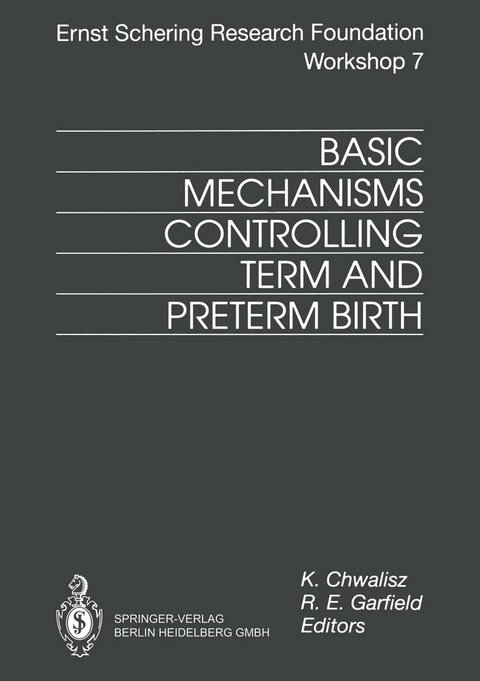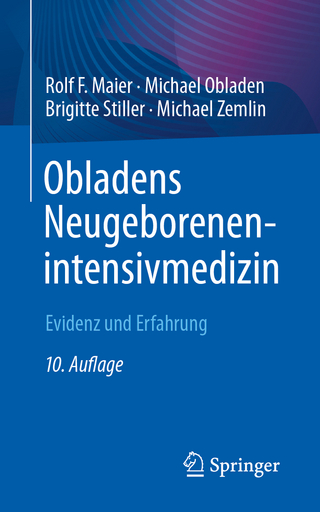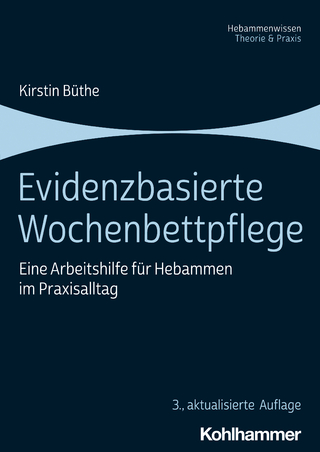
Basic Mechanisms Controlling Term and Preterm Birth
Seiten
2013
|
1. Softcover reprint of the original 1st ed. 1994
Springer Berlin (Verlag)
978-3-662-21662-0 (ISBN)
Springer Berlin (Verlag)
978-3-662-21662-0 (ISBN)
The mechanisms that initiate labour (i. e. , the conversion of the quies cent uterus to an active and reactive organ at term) are poorly under stood. Of considerable importance are the factors that control preterm labour and preterm birth, with their devastating effects on society. This problem is the leading obstetrical issue. Preterm labour affects ap proximately 10% of all pregnant women (even higher numbers are re- Abb. I. The participants of the workshop VI Preface ported for less developed countries or where prenatal healthcare is a low priority) and it is the leading cause of morbidity and mortality of babies. Current practices to arrest preterm labour, once initiated, are in effective. In addition, procedures to stimulate labour and dilate the cer vix at term may not be used effectively. On October 19th - 21 st, 1992, a Schering Foundation Workshop took place in Berlin to discuss the "Basic Mechanisms Controlling Term and Preterm Labour". Leading scientists from Europe and North America were assembled to consider the fundamental systems which regulate the uterus and cervix during pregnancy. The topics in the sym posium ranged from key cellular events governing uterine contractility and cervical dilatation during labour to clinical advances and applica tions. This book contains the proceedings of the workshop. We were pleased to have been part of the workshop and to have been responsible for its organization.
1 Control of Myometrial Contractility and Labor.- 2 Receptors and Signal Transduction in the Myometrium.- 3 Myometrial Electrophysiology.- 4 Role of Uterine Ca2+ Pumps and Na+ Pumps in Labor: A Molecular Biology Approach.- 5 Mechanism of Action of Steroid Hormones and Antihormones: A Mini-overview.- 6 Role of Progesterone in the Control of Labor.- 7 New Perspectives on Estrogen, Progesterone, and Oxytocin Action in Primate Parturition.- 8 The Role of the Infection and Cytokines in Preterm Parturition.- 9 Immune Control of Pregnancy.- 10 Molecular Mechanisms Regulating Contractility of the Pregnant Uterus.- 11 Pros and Cons of Preterm Labor Treatment.- 12 Therapies for Starting and Stopping Labour.
| Erscheint lt. Verlag | 20.11.2013 |
|---|---|
| Reihe/Serie | Ernst Schering Foundation Symposium Proceedings |
| Zusatzinfo | XII, 317 p. |
| Verlagsort | Berlin |
| Sprache | englisch |
| Maße | 148 x 210 mm |
| Gewicht | 430 g |
| Themenwelt | Medizin / Pharmazie ► Gesundheitsfachberufe ► Hebamme / Entbindungspfleger |
| Medizin / Pharmazie ► Medizinische Fachgebiete ► Gynäkologie / Geburtshilfe | |
| Schlagworte | Antigestagene • Antiprogestins • Birth • Frühgeburt • Geburtseinleitung • hormones • Infection • labor induction • Obstetrics • Pregnancy • pregnant uterus • preterm labor • uterine contractility • uterus • Uterusmotorik |
| ISBN-10 | 3-662-21662-0 / 3662216620 |
| ISBN-13 | 978-3-662-21662-0 / 9783662216620 |
| Zustand | Neuware |
| Haben Sie eine Frage zum Produkt? |
Mehr entdecken
aus dem Bereich
aus dem Bereich
Evidenz und Erfahrung
Buch | Softcover (2024)
Springer (Verlag)
49,99 €
eine Arbeitshilfe für Hebammen im Praxisalltag
Buch | Softcover (2023)
Kohlhammer (Verlag)
42,00 €
Buch | Softcover (2023)
Urban & Fischer in Elsevier (Verlag)
36,00 €


